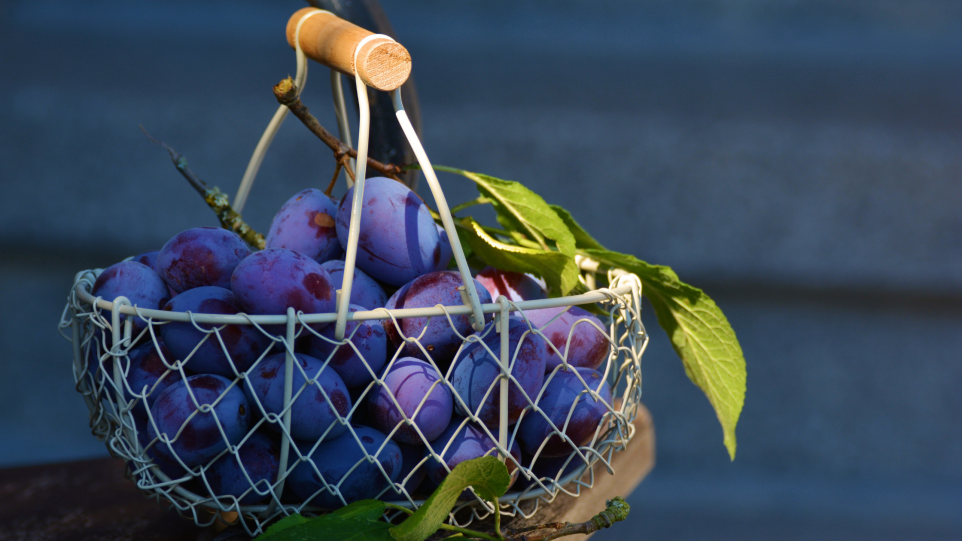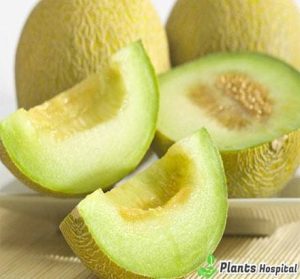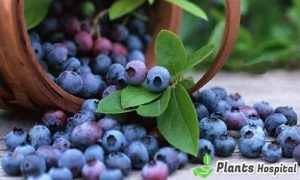Plums are a good source of fiber and antioxidants. They may be one of the first fruits that humans domesticated. What could be the possible reason? So what are the benefits of plums to the body?
Their extraordinary benefits. Plums are well-known for their ability to aid in treating constipation and Diabetes and prevent heart disease and cancer. However, there are beneficial ways that plums can benefit you. We shall explore their benefits in depth in this essay.
Table of Contents
What Is a Plum?- Health Benefits of Plums
Plums are members of the peach, nectarines, and apricot families. However, plums are significantly more varied than their stone-fruit relatives. They come in various sizes and colors, with skin that is red, purple, green, yellow, or orange and flesh that is pink, yellow, or orange.
They originated in China tens of thousands of years ago. Then they spread to Japan, portions of Europe, and North America. Today, approximately 2,000 kinds thrive throughout the world.
11 Health Benefits of Plums
Did you know that plums are not just yummy but also have incredible health benefits?
You may not be familiar with the term “drupe,” but if you’re interested in plums, I recommend you become acquainted. In its simplest definition, a drupe is any fruit containing seeds surrounded by pits. As a result, plums are sometimes referred to as stone fruits.

Plums are related to apricots, peaches, and nectarines, but their similarities end there. Indeed, plums have a greater range of varieties than any other stone fruit in their family tree. Plums come in various colors and sizes, including purple, yellow, orange, and red.
Plums were first grown in China thousands of years ago and were later transported to Japan, the United States, and some regions of Europe. Today, approximately 2,000 plum varieties are grown worldwide.
Now that you’re familiar with the history of plums, let’s look at the health benefits (spoiler alert: there are many!).
Plums include vitamin C, which helps your body grow muscle, produce blood vessels, heal, and benefit your eyes. Additionally, plums have the following health benefits:
1. Has the Potential to Lower Blood Pressure
According to a 2010 study, participants who drank prune juice and consumed prunes had lower blood pressure than the control group that did not consume prunes.
1. Defense Against Cell Damage/Cancer
Anthocyanins – the reddish-blue pigment found in plums — can aid in the elimination of damaging free radicals. This, in turn, aids in preventing cancer and cell damage.
1. Could be Effective in the Combating Obesity
Are you trying to lose weight and trim down your waistline? The University of Liverpool researchers divided 100 obese people into two groups; one group consumed prunes daily for 12 weeks, while the control group did not. On average, people in the prune group lost 4.4 pounds and a…” inch from their waistlines.
1. Low caloric content
At 30 calories, a small plum is not just a great snack; it also helps fulfill sweet cravings. With this in mind, plums can be an excellent choice for people on a diet or wishing to reduce their calorie intake.
1. Nourishing to the Bones
According to a study conducted by Oklahoma State and Florida State Universities, participants who ingested prunes and supplemented with vitamin D and calcium had considerably higher bone density in their spine and forearms than those who consumed dried apples and supplemented with the same nutrients.
1. Effective at relieving constipation
Plums are high in fiber, and when dried, the resulting prunes are well-known for their constipation-relieving properties. Indeed, a recent study discovered that eating plums alleviated the symptoms of constipation in a group of 51 persons (all adults).
1. Enhances memory and cognitive function
The University of Harvard Health Research has found antioxidants to slow the progression of Alzheimer’s disease. Plums are packed with antioxidants and include anthocyanin and quercetin, two compounds promoting brain health.
1. Promotes cardiovascular health
With 113 mg of potassium in a medium fresh plum, including them in your diet can help lower your risk of stroke and control high blood pressure.
1. Can Help deter Diabetes
According to health experts, plums’ low glycaemic index may aid in blood sugar control, resulting in a reduced risk of type 2 diabetes.
1. Efficaciously destroy Breast Cancer Cells
Early research indicates that treating cancer cells with plum extract may effectively kill aggressive cancer cells while leaving healthy cells undamaged.
1. Efficacy in Immune Boosting
According to a study conducted on chickens, plums may have immune-boosting effects. Chickens given plums recovered more quickly from a parasite infection when fed plums.
Humane parallels have not been observed, and research is needed.
Plum Nutritional Facts
Plums are low in calories-30g per 100g, high in carbs (9.6g per 100g), low in fat (0.1g per 100g), and high in protein (0.6g per 100g).
Additionally, they contain a beneficial blend of vitamins and minerals that aid in blood coagulation, stress management, fatigue reduction, the development of healthy red blood cells, and overall immune system support.
Ample Sugar
Plums are naturally high in fruit sugars, which the body rapidly converts to energy, but the process can be slowed if consumed alongside protein, which helps slow the release of sugars.
Plum Preparation
Plums are available from May through October, with the peak season occurring in July and August. Plums with a tiny “give” when gently squeezed are ideal for quick eating. Refrigerate your plums to slow the ripening process and prolong their ripeness.
Are you unable to locate perfectly ripe plums? Look for plums that aren’t quite ready to eat and store them in a paper bag at room temperature for up to three days.
Plums freeze well, but they should be pitted before freezing.
Plums in their raw state are delicious in a variety of recipes. Listed below are a few suggestions to get you started:
• Incorporate diced plums into salads for a delicious burst of flavor.
• Substitute plums for the avocado in your favorite guacamole recipe.
• Infuse slices of fruit in your water infuser
• Combine with granola to serve as a topping for your morning yogurt
• Add to smoothies
Antioxidant-dense
Plums are packed with antioxidants. These are compounds that aid in preventing cell damage caused by free radicals.
Free radicals are unstable molecules that arise as a result of the body’s metabolic processes that involve:
• exercises
• metabolizes food and transforms it into energy
• inhale cigarette smoke
• comes into contact with pollution in the air
• is in contact with sunshine
Free radicals induce oxidative stress in the body, resulting in cell damage. Oxidative stress has been associated with an increased risk of developing Diabetes, cardiovascular disease, and malignancies.
Plums are high in polyphenols, which are antioxidant-rich plant components.
Several studies have demonstrated polyphenols to help protect against cardiovascular disease and type 2 diabetes development.
A person’s risk of getting the numerous illnesses connected with oxidative stress can be reduced by eating antioxidant-rich foods such as plums.
Incorporating plums in one’s diet
Plums can be added to the diet in various ways; for example, plums can be consumed raw or prepared.
Plums can also be purchased as jam, spread over toast, or used in sandwiches; however, if a person wants to reduce their added sugar intake, they should choose jams with little or no added sugar.
Risks
Do Plums Have Side Effects?
Though they are few, plums do have some adverse effects.
• Kidney Stones
Plums reduce the pH of the urinary tract (23). This could result in the formation of kidney stones. As a result, individuals who have a history of kidney stones should avoid plums. However, further research is needed on this, so consult your physician.
• Further Likely Risks
Bloating may occur due to sorbitol in plums (24). If consumed in excess, the fiber in them may potentially cause constipation.
When eating a plum, be sure to remove the stone. For example, if a person consumes a plum stone, it may cause esophageal injury or choking. The esophagus is the tube that connects your mouth to your stomach.
Additionally, one should avoid blending, crushing, or chewing a plum stone. Stone fruit seeds contain amygdalin, a substance that the body converts to cyanide. If someone crushes or bites the stone and consumes the seed, they may fall ill.
Is it Possible to Have a Plum Allergic Reaction?
Along with celery and apples, plums are allergic to birch pollen, which can cause irritation and swelling of the mouth or throat.
Allergy symptoms typically manifest quickly, and you should consult a physician if you have an unpleasant response to plums. For example, in severe anaphylactic response, call an ambulance and seek medical attention immediately.
Buying The Ripest Plums
Plums should be bought in season and ripe. They should have a substantial weight and a slight give in the skin when lightly squeezed. Check for blemishes or bruising on the skin. Overly soft plums are overripe.
Read Also:
- 6 Nutrition And Health Benefits Of Poppy Seeds- Uses And Side Effects 2022
- 13 Proven Health Benefits of Blueberry Tea (2022)
- Quartz Healing Stone Health Benefits (Guide 2021)
- Top 8 Wonderful Health Benefits Of Mahlep Tree (Mahaleb Cherry)
FAQs
How should I store my plums?
Plums should be refrigerated when not in use. If they are not ripe, you can store them in a paper bag at room temperature until they ripen.
What differentiates plums from prunes and peaches?
While prunes are dried plums, peaches are a distinct variety of fruit; however, all three are members of the same genus.
How long do plums remain fresh?
Plums keep in the refrigerator for three to five days.
How do you know when plums have gone bad?
If plums develop dark patches, become too squishy, or begin to ooze, they are considered rotten. Such plums should be thrown away. Plums may also develop mold and an unpleasant odor in some instances; discard them.
Summary
Plums are stone fruit that comes in various colors and types. Pruning is the term used to describe dried plums.
Plums and prunes are loaded with nutrients, high in fiber and antioxidants.
Plums have numerous health benefits. They can be consumed to lower a person’s risk of Diabetes, some malignancies, and high cholesterol. Additionally, they could be included as part of a weight-loss diet.
Plums and prunes are consumed in various ways, including jams and juices. If a person consumes the plum stone, it may be mildly harmful; remove it before eating.








